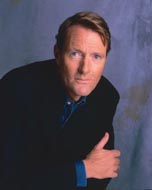"If I a were a woman, I'd be Zoë Sharp. If Jack Reacher were a woman, he'd be Zoë Sharp's main character, Charlie Fox."
Lee Child, in foreword to Mystery Writers of America anthology, Vengeance, April 2012.
Since the events described below, I have been very fortunate to get to know Lee Child personally and to have met him and worked with him on numerous occasions. I am immensely grateful that he is such a big supporter of my work—and all-round nice guy.
 I was on tour in the UK in the Spring of 2002, for my sixth novel, and at the end of one of the events a woman came up to me and told me she loved my books, which is always a wonderful thing to hear. I responded happily—believe me, no forced politeness is ever required on such occasions—and then she said, “But Zoë Sharp is better.”
I was on tour in the UK in the Spring of 2002, for my sixth novel, and at the end of one of the events a woman came up to me and told me she loved my books, which is always a wonderful thing to hear. I responded happily—believe me, no forced politeness is ever required on such occasions—and then she said, “But Zoë Sharp is better.”
Naturally I asked, “Are you Zoë’s mom?”
She denied any family connection, and I filed the name away, because at heart I’m a reader, not a writer, and if a well-read fan offers a recommendation, I take it seriously. I write only one book a year, after all, but I read hundreds, and life is too short for bad books. Rushing from place to place on tour didn’t give me time to go shopping, but fortunately free books are a currency in the publishing trade, so I had my publicist call Zoë’s publicist, and within a day a copy of KILLER INSTINCT was biked over to my next stop, and I read it in short order.
And was very impressed.
Triply impressed, actually. Firstly, because apart from anything else, this was a debut novel, and there was nothing shy or tentative about it, and it waded straight in and tackled—secondly and thirdly—two huge challenges. Some things are just very, very difficult to do, because of the weight of cultural heritage and tradition and the limits set by others’ prior failures—but Zoë had gone right ahead and done them very successfully. (Full disclosure: Obviously I had never met Zoë at that point; knowing her as I do now, if I see her tackling a challenge, I get the body bag ready—for the challenge.)
The first challenge she beat was the difficulty of creating a truly convincing tough-girl protagonist. It shouldn’t be difficult, but it is. (Don’t get me—or Zoë—started on the legacy left by two centuries of sexism in our culture.) But Charlie Fox came across as real, true, and authentic. She wasn’t like anyone I knew—which to me is the point of thrillers: I don’t want to read about people like the ones I know—but she was someone I would want to know, and she felt like she could show up around the next corner. She wasn’t over-explained; her backstory was sketchy . . . above all, she didn’t seem invented. She just was.
The second challenge Zoë beat was to make an obscure and provincial place, in this case Lancaster, in North West England—seem convincingly dangerous. None of us has a problem believing New York City or Chicago or LA are jungles, but almost no writers can make a smaller location tough without a few winces and a lot of suspension of disbelief along the way. But Zoë did. As it happened, I knew Lancaster fairly well—I lived near it for seven years—and she wrote it like I felt it.
So, two big challenges easily defeated in a debut novel. Triply impressive. The next day I asked my publicist to call for Zoë’s second book [RIOT ACT], which was just out. I read it—and it was just as good. I have been a big fan ever since.
